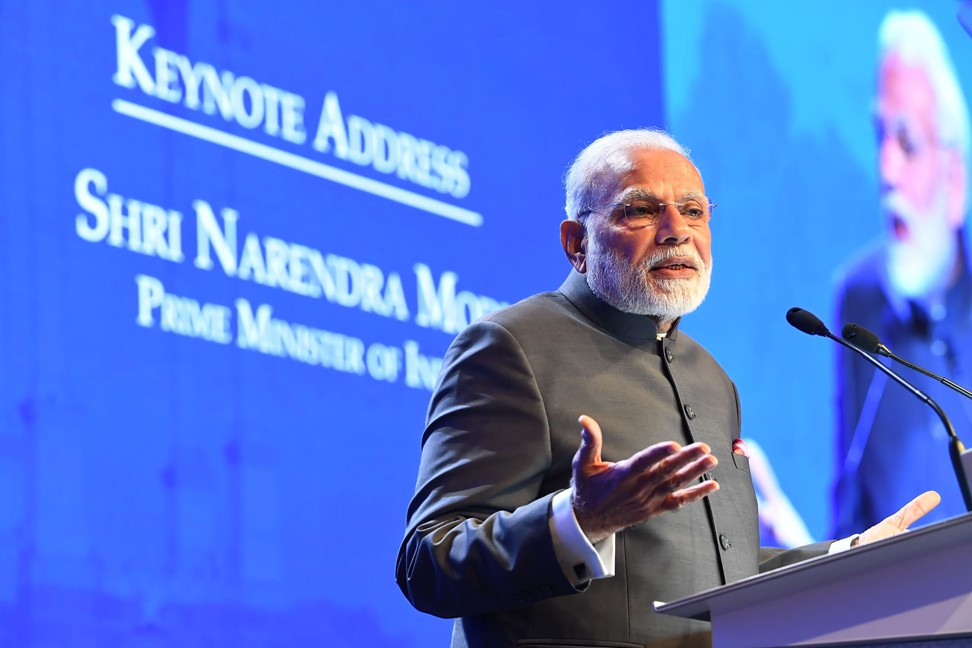
More cooperation, not confrontation, needed in the South China Sea
The decision by France and Britain to join the United States in naval patrols of the disputed waters will only raise tensions with Beijing, and they would be advised to listen to Indian Prime Minister Narendra Modi
Britain and France have decided to join the United States in naval patrols of the South China Sea, an action they believe will help safeguard navigation. But the tones of their defence ministers in making the announcement at the Shangri-La Dialogue security gathering in Singapore was interpreted by many in China and Southeast Asia as nothing but provocation.
China has never restricted movement of shipping in the contested waters and none of the three Western nations are claimants, so such an unwarranted foreign presence is bound to worry those seeking a peaceful resolution. Pragmatism and efforts to build mutual trust, not action guaranteed to stir tension, are what the region needs.

In the wake of two US warships recently sailing within 12 nautical miles of Chinese military installations on the Paracel Islands, also known as the Xisha Islands, naval vessels from Britain and France will visit Singapore next week and then go into the disputed seas.
French Minister of the Armed Forces Florence Parly told the forum that holding such exercises “on a regular basis with allies and friends” would contribute to a rules-based order, words backed by her British counterpart, Gavin Williamson. US Secretary of Defence James Mattis warned that Beijing’s claimed militarisation of the South China Sea would lead to “much larger consequences”.
There was no doubt about the tension between the Chinese and Western delegations at the Singapore gathering, with China and the US accusing one another of being confrontational in the South China Sea. Beijing, with lower ranking officials at a forum organised by a London think tank, was at a disadvantage; different ideologies, defence alliances and rivalries are bound to lead to such feelings.
But while China also needs to have its voice heard, it has to make better arguments and work even closer with neighbours to ensure its reasoning and logic are understood.
Confrontation was far from the mind of Indian Prime Minister Narendra Modi in giving the keynote speech; he chose pragmatism, a middle road favouring neither China nor the US. He acknowledged the need for freedom of navigation in international waters, yet hit out at the provocative strategy of the US.
He avoided mention of the Quad, the strategic alliance the US, Japan and Australia want India to join in the region as a hedge against China’s rise. As such a grouping will increase tensions, not wanting to commit makes sense.
India, as with other nations, needs to cooperate with China, not be at odds with it. Modi put it succinctly: “Asia and the world will have a better future when India and China work together in trust and confidence, sensitive to each other’s interests.”

